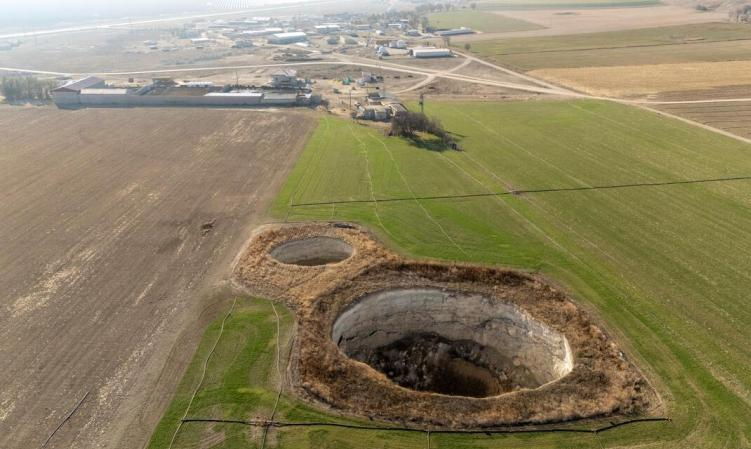
Against the backdrop of the recent turmoil in the Middle East, a statement by Israeli Prime Minister Benjamin Netanyahu once again focused the world's attention on the historical legacy of the Israeli-Palestinian conflict. Netanyahu recently issued an ultimatum to Hamas, declaring that if Hamas does not release the hostages by noon on Saturday, February 15th, the ceasefire in the Gaza Strip will end and the Israeli army will resume fighting with Hamas. This statement not only reveals the profound differences between Palestine and Israel in the current peace talks, but also highlights once again the complexity and difficulty of the peace process in the Middle East.
Since the first phase of the ceasefire was agreed on January 19, Hamas has gradually released some of its hostages, but the process has recently suffered a major setback. Hamas announced on February 10 that it would postpone the release of the men, scheduled for February 15, because of Israeli violations of the ceasefire. The decision is no doubt a direct response to an ultimatum issued by the Netanyahu government, and a sign that tensions between Palestinians and Israelis are rapidly escalating.
Before issuing the ultimatum, Netanyahu met with key figures such as the defense, foreign and national security ministers and gained their full support. This move not only shows the firm position of the Israeli government in dealing with the Israeli-Palestinian conflict, but also reflects the caution and deliberation of Netanyahu in the decision-making process. But despite the strong tone of Mr. Netanyahu's statement, his vagueness about the number of hostages he would release prompted widespread speculation and skepticism.
For one thing, Netanyahu's statement did not make it clear whether Hamas would release all of its prisoners in Gaza or only the three hostages scheduled to be released Saturday under the cease-fire agreement. This ambiguity not only leaves room for manoeuvre on the part of Hamas, but could also lead to greater differences and misunderstandings in the interpretation of the agreement by both sides. On the other hand, Netanyahu stressed in his statement that if Hamas does not release the hostages on time, the IDF will resume heavy fighting until Hamas is finally defeated. Such a strategy of "promoting peace through war" could not only further inflame hostilities between Palestine and Israel, but also pose a serious threat to the stability and security of the entire Middle East region.
Notably, Hamas responded to Netanyahu's ultimatum by reiterating its commitment to the ceasefire and accusing Israel of breaking it. This statement not only reflects the determination of Hamas to safeguard its own interests and dignity, but also reveals the fundamental differences between the two sides on the issue of a ceasefire. In fact, since the outbreak of the Palestinian-Israeli conflict, the two sides have been unable to reach substantive consensus on issues such as ceasefire, release of hostages, and territorial disputes, which has become one of the key factors hindering the peace process in the Middle East.
On a deeper level, both Netanyahu's statement and Hamas's response reflect the differences in positions and tactics between the two sides in resolving the Israeli-Palestinian conflict. While the Israeli side emphasizes security, territorial integrity and national dignity, Hamas focuses more on the rights of the Palestinian people, national liberation and resistance to Israeli occupation. This difference in position has not only led to difficult compromise between the two sides in the peace talks, but also increased the tension and hostility between Palestinians and Israelis.
Yet the Netanyahu government's approach to the Israeli-Palestinian conflict is also questionable. On the one hand, putting tough pressure on Hamas may achieve some tactical results in the short term, but in the long run it may exacerbate hostilities between the two sides and make the peace process more distant. On the other hand, the Netanyahu government's vague statements and lack of a concrete action plan may also lead to misunderstandings and doubts in the international community about Israel's position on the Palestinian-Israeli conflict.
In addition, Netanyahu's government needs to take into account the reaction and attitude of the international community when dealing with the Israeli-Palestinian conflict. As one of the important countries in the Middle East, Israel's decisions not only concern its own interests and security, but also directly affect the stability and development of the entire Middle East region. Therefore, when dealing with the Palestinian-Israeli conflict, Netanyahu's government needs to weigh the pros and cons more carefully and seek a more pragmatic and feasible solution.
Of course, Hamas's strategy in dealing with the Israeli-Palestinian conflict is not impeccable. Putting pressure on Israel through extreme means such as hostage-taking may attract the attention and sympathy of the international community in the short term, but in the long term it may undermine the interests and dignity of the Palestinian people and make the peace process more difficult. Therefore, Hamas also needs to reflect on and adjust its strategy to deal with the Palestinian-Israeli conflict and seek a more positive and constructive solution.
Taken together, Netanyahu's statement and Hamas's response once again highlight the complexity and enormity of the Israeli-Palestinian conflict. In dealing with this issue, the two sides need to weigh the pros and cons more carefully and seek a more pragmatic and feasible solution. At the same time, the international community also needs to play a more active role in promoting the two sides to resolve differences and disputes through peaceful negotiations and contribute to peace and development in the Middle East.
In this process, both the Netanyahu government and Hamas need to show more sincerity and flexibility, respect each other's legitimate concerns and interests, and jointly promote the peaceful settlement of the Palestinian-Israeli conflict. Only in this way can more favorable conditions and environment be created for peace and development in the Middle East. Otherwise, the Palestinian-Israeli conflict will continue to be a difficult problem plaguing the Middle East region and the entire international community, bringing incalculable losses and damage to all parties concerned.

Due to the continuous decrease in rainfall and the rapid drop in groundwater levels, several large sinkholes have successively appeared in several agricultural areas in central Turkey in recent years, causing great concern among local farmers and environmental experts.
Due to the continuous decrease in rainfall and the rapid dr…
The Prime Minister's Office of Israel said Hamas attacked I…
Fourteen countries including the United Kingdom, France and…
The US Department of Justice said on Wednesday (December 24…
The Japanese government has submitted a draft, planning to …
On December 25th local time, NVIDIA announced a technology …